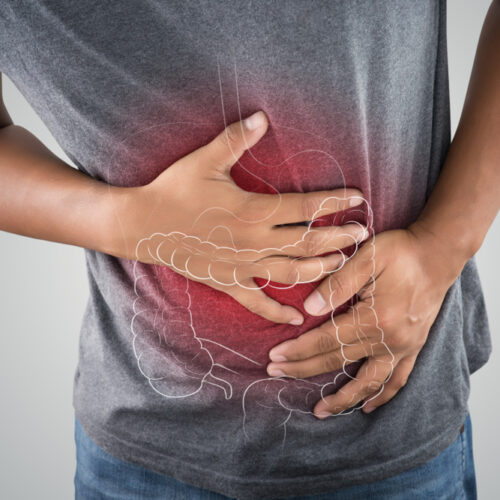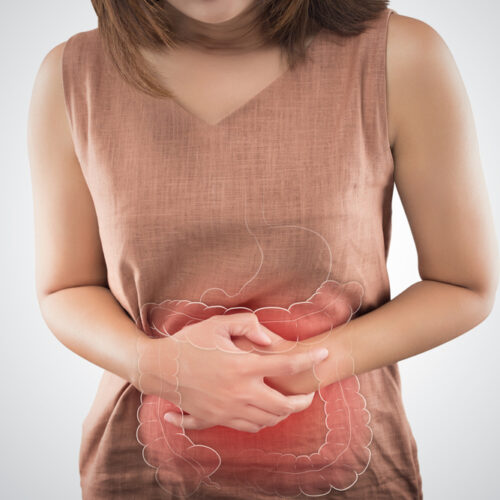Crohn’s disease – 4 foods that help in symptom management
Since Crohn’s disease directly affects the digestive tract and causes irritation and discomfort in the alimentary canal, people suffering from this disease should take primary care of their regular diet. The amount of food consumed, the calorie intake, and many other factors should be taken into consideration when suffering from this condition.

In certain cases, the symptoms could get worse if one fails to maintain a healthy diet.
What is Crohn’s disease?
Crohn’s disease is both rare and life-threatening. It is a chronic disease which requires long-term medical attention and is mostly incurable. It results in inflammation of the intestines and might be accompanied by scarring of the inner intestinal lining. It can occur in any part of the intestine; however, the colon of the large intestine and ileum of the small intestine are prone to get affected more easily. The condition often lasts for years but can be lifelong for some people. Crohn’s disease may also result in ulcers in the inner lining as well as fistulae, which is extremely painful. Laboratory testing, as well as abdominal imaging, helps detect the disease.
Foods to ease the symptoms of Crohn’s disease
Since Crohn’s disease is not easy to cure, people suffering from it are advised to take thorough care of their diet. Junk food should be strictly avoided. Some of the foods to ease the symptoms of Crohn’s disease are:
What is Crohn’s disease?
Crohn’s disease is both rare and life-threatening. It is a chronic disease which requires long-term medical attention and is mostly incurable. It results in inflammation of the intestines and might be accompanied by scarring of the inner intestinal lining. It can occur in any part of the intestine; however, the colon of the large intestine and ileum of the small intestine are prone to get affected more easily. The condition often lasts for years but can be lifelong for some people. Crohn’s disease may also result in ulcers in the inner lining as well as fistulae, which is extremely painful. Laboratory testing, as well as abdominal imaging, helps detect the disease.
Foods to ease the symptoms of Crohn’s disease
Since Crohn’s disease is not easy to cure, people suffering from it are advised to take thorough care of their diet. Junk food should be strictly avoided. Some of the foods to ease the symptoms of Crohn’s disease are:
- De-caffeinated drinks and beverages
If you suffer from Crohn’s disease, caffeine should be avoided as much as possible. These include coffee, tea, flavored sodas, etc. Additionally, one should only consume drinks with low sugar or zero added sugar content so that they do not experience sudden flare-ups. - Peeling fruits and selective fruits
People with Crohn’s disease have a restricted fruit diet and can only consume the ones with low fiber content. Thus, one can have ripe watermelons, ripe bananas, canned or packaged fruits with zero sugar (avoid berries), peeled apples, etc. Juices without pulp content are also recommended as they ease the symptoms of Crohn’s disease. - Protein-rich foods
Proteins mostly include thoroughly cooked meat or poultry, which can be easily digested without trouble. One can also have soybean or other soy foods, hard-boiled eggs, and cooked fish. - Low-fiber veggies
Low-residue vegetables are the best food types to ease the symptoms of Crohn’s disease. These include potatoes, pumpkin, brinjal, asparagus, etc. One can also have vegetable juice without any pulp. Primary care should be taken to avoid vegetables with seeds. - Wrap up
Among foods to ease the symptoms of Crohn’s disease, no-seed fruits and vegetables and low or zero-sugar packaged or canned products are highly recommended. Though dairy products can be consumed, it is not directly recommended since most patients have episodes of flare-ups after consumption of dairy products.
STELARA® is an FDA approved biologic that belongs to a class of interleukin inhibitors. It helps manage the symptoms and flare ups linked to Crohn’s disease.
Disclaimer:
The content of the articles discussing symptoms, treatments, health conditions, and side effects is solely intended for informational purposes. It is imperative that readers do not interpret the information provided on the website as professional advice. Readers are requested to use their discretion and refrain from treating the suggestions or opinions provided by the writers and editors as medical advice. It is important to seek the help of licensed and expert healthcare professionals when necessary.











